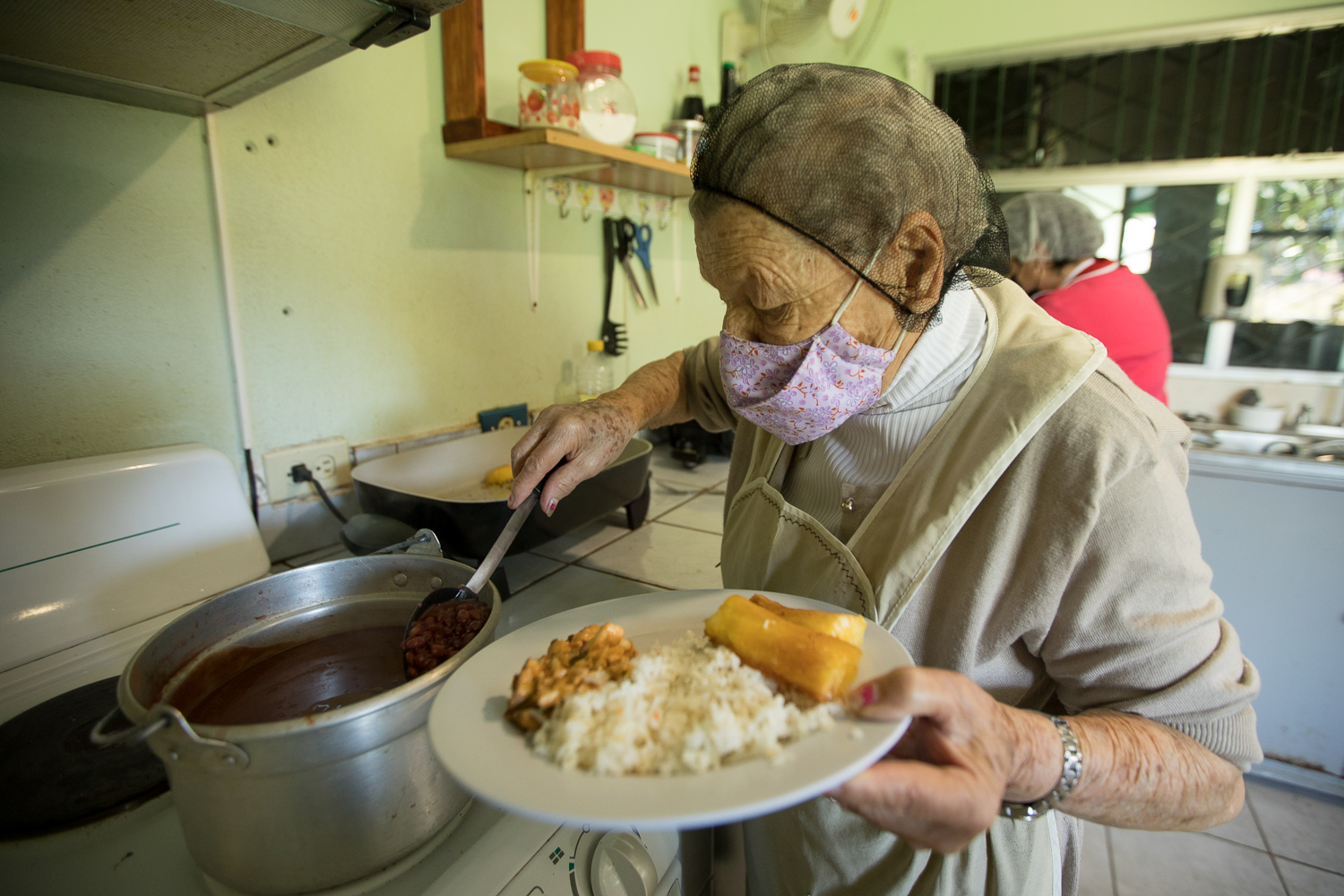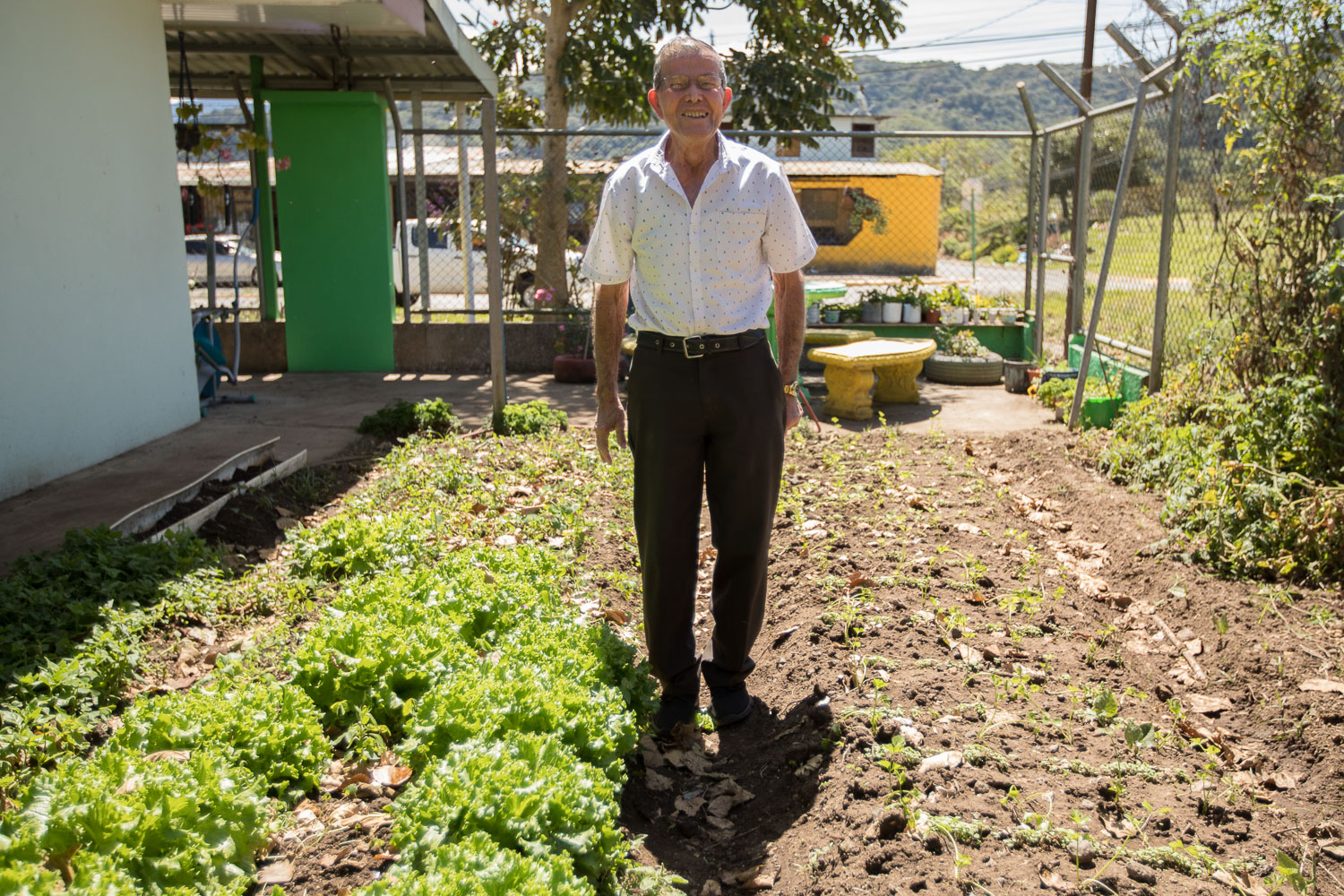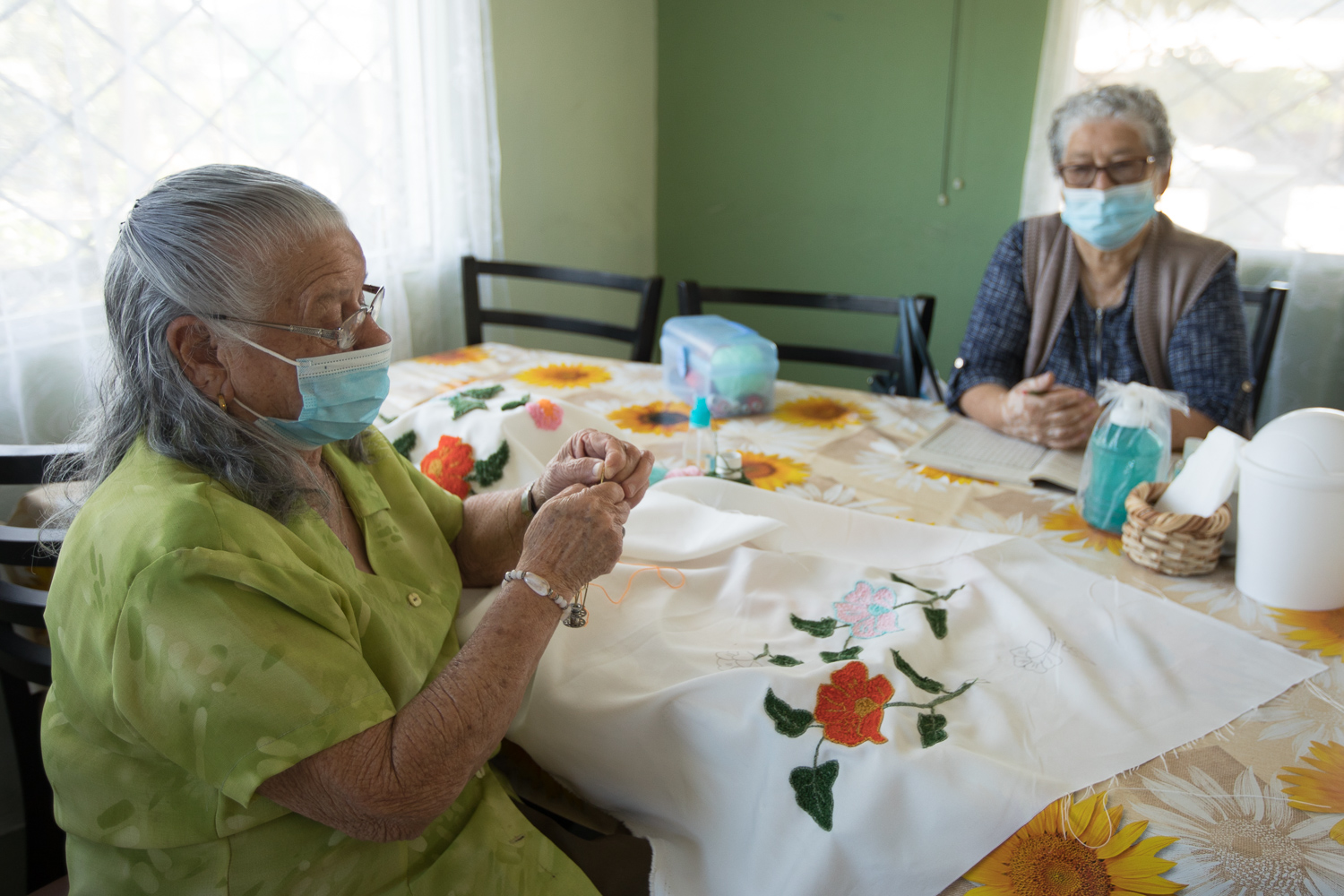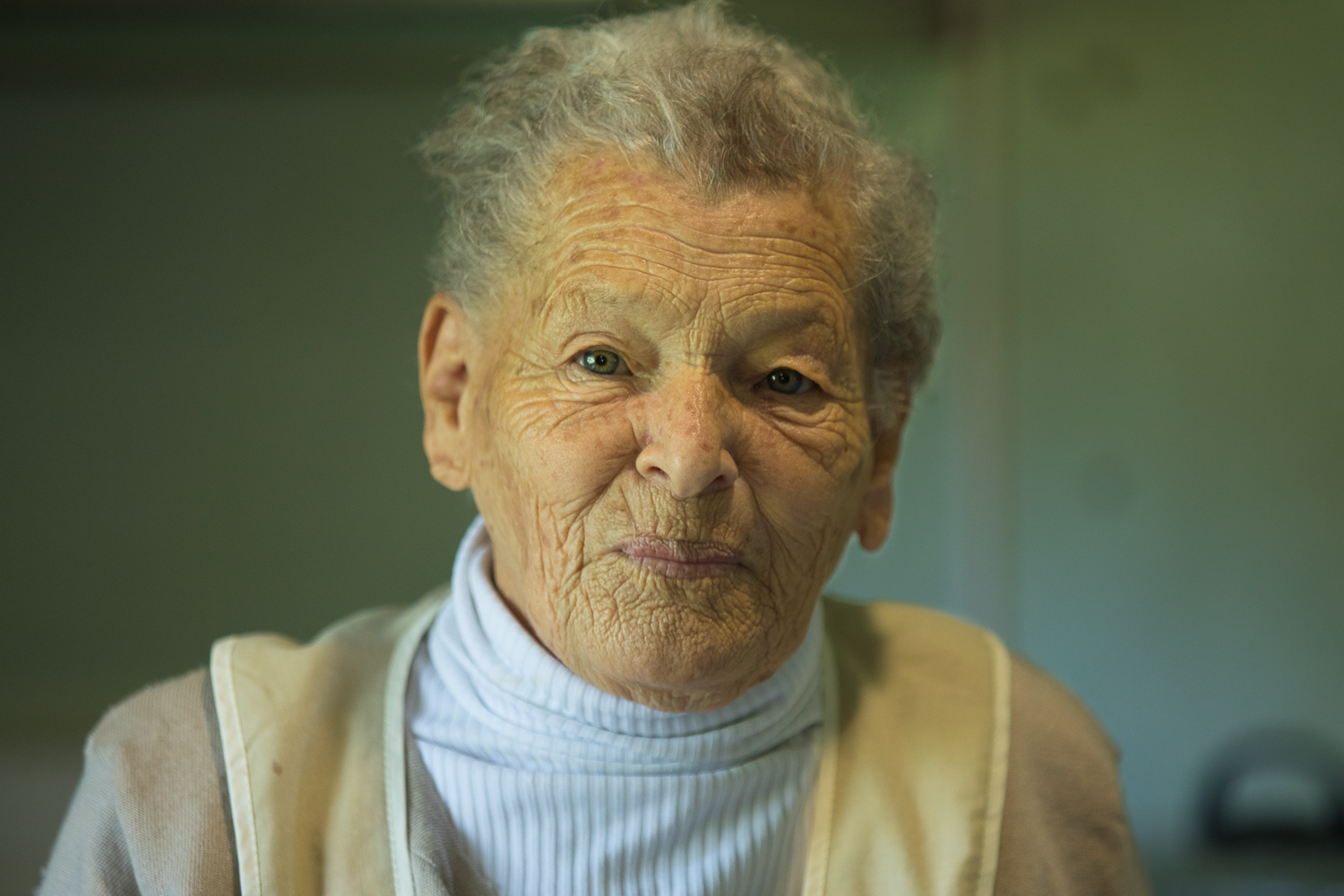This story has been adapted for elementary school, as well as English-language learners of all ages, from our longform piece “How can a city become age-friendly?” by Mónica Quesada Cordero, part of our 2022 edition “Long Live CR!.” Learn more about how to use this story in your family and classroom right here.
Vocabulary list for English-language learners: To age, envejecer. Age-friendly, amigable con el envejecimiento. Senior citizens, adultos mayores. Cities, ciudades. Sidewalk, acera. Crosswalk, paso peatonal. Caregiver, cuidador/a. And the elements of solutions journalism, los elementos del periodismo de soluciones: Response, respuesta. Evidence of impact, evidencia de impacto. Adopt, adoptar. Lessons, aprendizajes). Limitations, limitaciones.
The problems of aging in Costa Rican cities and towns are very real.
María Dolores Coto Madriz is 81 years old. Everyone she knows calls her doña Loly. Doña Loly says that there is a “lack of love” towards older people in Costa Rica. There are also many physical challenges for senior citizens who have to navigate the streets of our cities and towns. Holes in the sidewalk, crossing a busy road without a crosswalk, or getting on and off of crowded buses with steep stairs can all be difficult or even dangerous.
But this solution is REAL as well.
Doña Loly decided to do something about it: she started the Cocorí Senior Center in Cartago and has volunteered there for more than 20 years. She started a group where senior citizens could come together and support each other, and it grew quickly to 20 people, so she reached out to her municipality for help. Today, the Cocorí Senior Center offers meals and activities every day as part of the Municipality of Cartago’s program for the elderly, which supports 17 centers like Cocorí.

Why does the Municipality of Cartago support this center? It is a member city of the Global Network of Age-Friendly Cities and Communities of the World Health Organization (WHO), along with 791 other cities worldwide. Cartago is one of 19 Costa Rican cities on the list, including El Guarco, Belén, Heredia, Flores, Curridabat, Montes de Oca, Tibás, Mora, Dota, Coronado, Santa Ana, Grecia, Zarcero, San Carlos, Alajuela, Orotina, Esparza and Tilarán.
What does this mean? Well, to become “age-friendly,” the municipality is investing in a response to the problems faced by the elderly. It is improving sidewalks and road crossings, and training bus drivers to be more helpful to older bus riders. It also carries out activities for the training, education and recreation of both older adults and caregivers, like the gardening, exercise, and other activities that take place at centers such as Cocorí. In several Costa Rican cities, municipalities have gotten help to make all of this happen. For example, an organization called the Fundación Yamuni Tabush has supported the several municipalities in their work.

Is it working? The evidence shows the impact of all these efforts. In Cartago, sidewalks have been repaired, crosswalks have been painted, and more than 200 elderly people are getting support every day in day centers like Cocorí. And the municipality has trained many people, including bus drivers, resulting in better treatment of older people when they take the bus.

This has resulted in lots of learning, or insights that other people who want to make their cities age-friendly can adopt or implement. For example, the people leading these efforts have learned that it is very important to ask older people for their opinions about what should change in their communities. In another city, Montes de Oca, all decisions have been made based on a survey of more than 175 elderly people.

But the work is very hard. There are limitations, things that don’t go so well. One limitation is that many neighborhoods in urban Costa Rica do not have enough green spaces and places to walk safely, and that is very hard to overcome without lots of resources.
What do you think about this story? Does it remind you of senior citizens in your family, or of things that happen in your neighborhood? Talk about it in your classroom or family. Use the conversation guide below!
More resources for educators and families:
Host a solutions journalism circle: a quick-start guide for all ages





